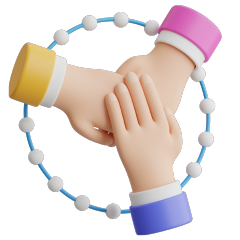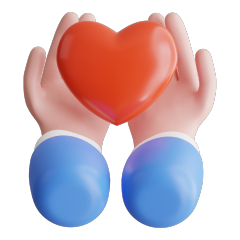Kindness at work matters more than we think

Kindness at work is what helps teams communicate honestly, support each other through challenges and create workplaces that are resilient and respectful.
Table of Contents
Let’s take a pause for a moment. How did you feel at work today? Did someone greet you warmly? Did a colleague take time to check in on you? Or perhaps, was the day heavy with emails, deadlines, and that feeling of being stretched too thin?
If you found yourself wishing for more kindness, we feel you. Many of us move through our working days on autopilot without realising just how much difference a kind word, a patient response or a simple act of care can make.
The truth is kindness at work is not a small thing. It changes how we feel, how we connect with others and even how we perform. And science backs it up.
Kindness at work and its impact on workplace culture
A study shared by Psychology Today Australia found something remarkable: kindness at work predicts happiness more strongly than income. Imagine that–the way people treat you each day matters more to your wellbeing than the size of your pay packet.
In fact, being kind to your boss and having that kindness returned was one of the strongest predictors of workplace happiness. Why? Because kindness builds trust. And trust, as other research has long shown, is the bedrock of job satisfaction and commitment.
Another study published by Springer confirmed that kindness is the most reliable predictor of workplace happiness across the board.
And organisations notice the difference too. Great Place to Work Australia explains that when empathy and kindness are woven into workplace culture, staff feel valued. And when people feel valued, they bring their best selves to work.
So yes, kindness is good for business. But more importantly, it’s good for people.
Why kindness feels so powerful

Think back to a time when someone was kind to you at work. Maybe a teammate covered for you without fuss, or a manager really listened instead of brushing you off. How did that moment land in your body? Relief? Gratitude? Comfort you didn’t know you needed?
Now think about the opposite. The email sent without respect. The cold meeting where your ideas were dismissed. Those moments linger too, and they get the best of us.
Kindness lifts. It’s that simple. It tells us: “you matter, you are seen and you are safe here. And once we feel that, we can get on with our work not just with efficiency, but with heart.
The ripple effect of kindness
One act of kindness doesn’t stop with one person. It ripples.
A kind word from a manager makes an employee more likely to help their peer. A patient response in a stressful moment encourages calm across a team. A culture that rewards kindness instead of cynicism becomes one where ideas flow, people stay and trust grows.

Research from Forbes calls this a new standard. Kindness is no longer optional. It is expected in workplaces that want to thrive.
Everyday kindness at work, in practice
Kindness is not about grand gestures, it can be something like:
- greeting a co-worker good morning the moment you saw them
- remembering a detail someone shared and asking about it later
- offering help before it’s asked for.
- saying “thank you” in a way that feels personal
- taking two minutes to ask: “How are you doing today?” and actually listening to the answer.
These might sound like small, obvious things. But over time, they are what create a culture of care.
What kindness is, and what it isn’t
Sometimes people worry that kindness at work means lowering standards, avoiding hard conversations or always saying yes. But that’s not true.
Real kindness is honest. It says what needs to be said, but with respect. It holds people accountable, but without shame. It chooses words that build up, not tear down.
Kindness doesn’t avoid truth, it delivers truth in a way that still lets the other person feel their dignity intact.
For leaders and for all of us
If you’re a leader, your actions set the tone. When you model kindness in the way you greet, listen and appreciate efforts you give others permission to do the same. And when you don’t, the absence is felt even more strongly.
But kindness is not only the responsibility of leaders. Every one of us shapes culture with our daily actions. A workplace is not built by policies alone, but by people, moment to moment.

A message for you
If you are reading this and thinking: “yes, I need more kindness where I work“, let this be a reminder that your feelings are valid. Work should not grind us down, it should be a place where we are respected, supported,and allowed to flourish.
And if you are wondering what difference you can make, you can always start small. Today, choose one act of kindness. Offer patience in a meeting. Send a thank you note. Check in with a colleague. You never know what difference it might make.
Kindness at work is not a dream. It is a practice that changes lives, workplaces and futures. We at Leora help organisations create cultures where kindness is the norm, because when people feel cared for, they bring their best to their work.
Workplaces built on kindness are not just happier. They are stronger, more resilient and filled with light.
And that’s the kind of workplace everyone deserves.
Want to learn how kindness can reshape your workplace? Learn more by working with our team today





